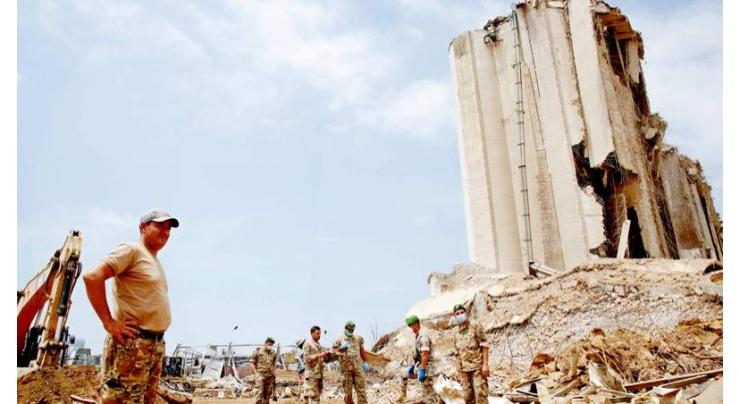
Beirut Blast Aftermath Recalls Lebanon War: MSF Head
Muhammad Irfan Published August 06, 2020 | 09:49 PM

With some 300,000 people left homeless by the massive explosion in Beirut, and fears of food and medicine shortages, MSF on Thursday likened the humanitarian fallout to that of Lebanon's civil war
Paris, (APP - UrduPoint / Pakistan Point News - 6th Aug, 2020 ) :With some 300,000 people left homeless by the massive explosion in Beirut, and fears of food and medicine shortages, MSF on Thursday likened the humanitarian fallout to that of Lebanon's civil war.
Doctors Without Borders (MSF) President Mego Terzian told AFP that after the initial rush to treat the injured, the next priority would be to provide food and shelter for the destitute.
"Another priority will be taking care of people with chronic illnesses, those with cancer, HIV or respiratory diseases such as asthma, given the risk of an interruption of drug supplies," he said.
Terzian said warehouses storing medicines and vaccines in the port of Beirut were damaged in Tuesday's monster blast.
The provisional death toll stood at 137, but with dozens missing and 5,000 wounded the number of victims was expected to rise as rescue workers continued to comb through the rubble.
Three hospitals in the Achrafieh neighbourhood of central Beirut, including one with 1,100 beds, were damaged in the blast.
"The dialysis centre, which was the biggest in the country, was completely destroyed," Terzian said.
But hospitals that were quickly overrun on Tuesday, with overflowing emergency rooms, had a handle on the situation by Wednesday with many injured transferred outside Beirut, he added.
"Lebanese healthcare workers, especially those with experience of the civil war, were able to triage the emergency rooms very quickly and prioritise those patients who had to go to the operating rooms," he said.
Terzian said Qatar, Kuwait and Jordan were sending field hospitals, and attempts were being made to guarantee supplies of basic medicines such as antibiotics, painkillers and blood bags.
The blast sowed destruction like that caused by the country's 1975-90 civil war, levelling buildings several hundred metres (yards) away.
"We lived difficult and similar experiences during the Lebanese war," Terzian said.
Bombings of petrol warehouses near the port had yielded "similar scenes -- the city was completely devastated, people were wandering the streets, wounded, desperate, without knowing where to go."
Recent Stories

Speakers stress burn prevention measures

SU extends deadline for submission of LLB (Hons) exam forms with late fee

More rain expected in various areas of Balochistan during next 24 hours

IGP Sindh chairs meeting on foreigners' security

Barrister Gohar's criticism against president Zardari, a ridiculous act: Sharjee ..

Irrigation Dept to enforce water rotation owing to low flows in Indus river

Commissioner for integrated efforts to make Karachi encroachment-free

Wheat procurement drive in Sargodha from April 22

Supreme Court dismisses accused's bail plea

Punjab Minister for Health and Emergency Services Khawaja Salman Rafique outline ..

Police claim to arrest four outlaws with illegal weapons

Islamabad to host LIIBS 7th edition on April 23, 24
More Stories From World
-

Iran blasts rattle global markets
6 minutes ago -
H5N1 strain of bird flu found in milk: WHO
6 minutes ago -

Court aims to wrap Trump jury selection ahead of opening arguments
47 minutes ago -

Croatia top court bars president from becoming next PM
47 minutes ago -
Hindu nationalist Modi the favourite as India votes
2 hours ago -
French police surround Iran consulate in Paris: security source
2 hours ago
-
Blinken says US 'not involved in any offensive operation'
2 hours ago -
Beijing half marathon runners stripped of medals after controversial finish
2 hours ago -
Sudanese rue shattered dreams as war enters second year
2 hours ago -
Eight killed in Russian strikes
3 hours ago -
Nagelsmann commits to German team ahead of home Euros
3 hours ago -
Remote Indonesia volcano erupts again after thousands evacuated
3 hours ago


